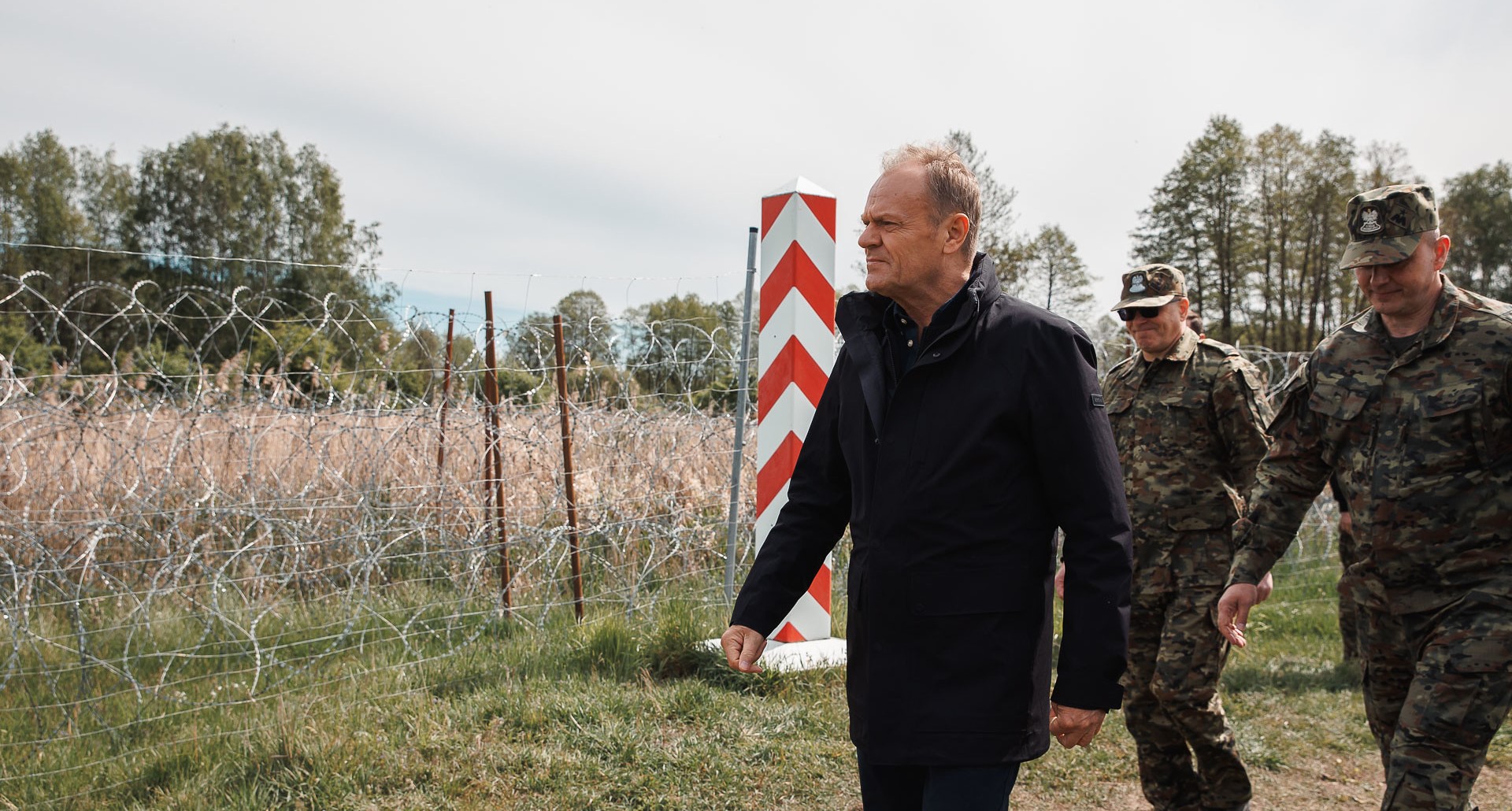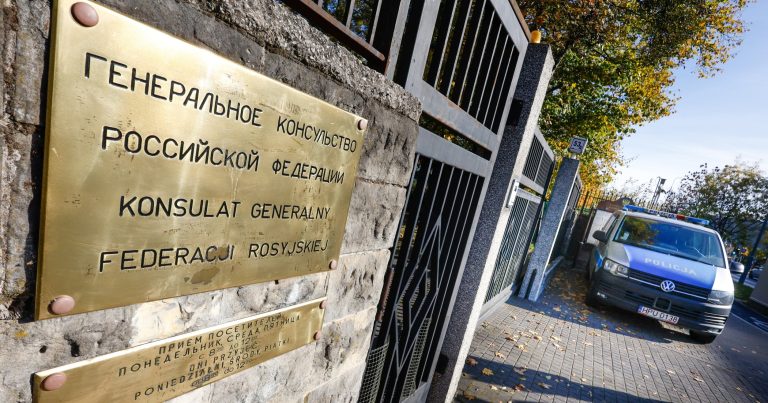Poland reintroduces exclusion zone on Belarus border amid migration crisis

An exclusion zone will be introduced along part of Poland’s border with Belarus on Thursday this week, after the government today agreed on its final form. Unauthorised people will not be allowed to be within 200 metres of the border in some places, and up to 2km in others.
The measures were first announced by Donald Tusk almost two weeks ago following the stabbing of a Polish soldier by a migrant who was trying to cross the border. That soldier later died from his injuries.
Several other officers have also been attacked along the border, where since 2021 tens of thousands of migrants and asylum seekers – mainly from the Middle East, Asia and Africa – have been trying to cross with the help of the Belarusian and Russian authorities.
A Polish soldier has died after being stabbed with a knife while trying to stop a group of migrants from forcing their way across the border from Belarus https://t.co/nH2gp3g5sT
— Notes from Poland 🇵🇱 (@notesfrompoland) June 6, 2024
The government had initially planned to introduce the exclusion zone on 4 June, later pushing back that date to 7 June. Only today, however, were the final details agreed, with the interior ministry announcing that the relevant regulation will be signed on 12 June and will go into force the following day.
“The proposed solutions – by limiting the presence of outsiders in the area of official operations – are aimed at ensuring the safety of both outsiders as well as police officers, border guard officers and soldiers, and limiting the activities of smuggling groups facilitating illegal migration,” said the ministry.
It added, however, that, in consultation with local authorities and businesses, the government has sought to “limit the zone to a necessary minimum”.
“The proposed area of the prohibited zone will, as a rule, not include towns and tourist routes, so that the effects of the restrictions are as unburdensome as possible for residents, tourists and other entities conducting professional activity,” said the ministry.
🔷Projektowane rozporządzenie Ministra Spraw Wewnętrznych i Administracji @TomaszSiemoniak w sprawie wprowadzenia czasowego zakazu przebywania na określonym obszarze w strefie nadgranicznej przyległej do granicy państwowej z Republiką Białorusi wprowadzi czasowy (90 dni) zakaz…
— MSWiA 🇵🇱 (@MSWiA_GOV_PL) June 10, 2024
Just over 60km of the border with Belarus (which runs for around 400km in total) will be affected. Within that, 44km will have an area of prohibited entry stretching 200 metres from the border. Along the remaining 16km, located in nature reserves, the prohibited area will stretch 2km into Poland from the border.
Speaking today, Tusk noted that the latter areas require special measures because people smugglers operate there “in forested areas not directly at the border, but a kilometre, one and a half, two kilometres away”.
The measures – which are similar to ones introduced by the previous Polish government in 2021 and withdrawn in 2022 – will initially be in place for a period of 90 days.
🇵🇱 Prime Minister @DonaldTusk in #Białystok: The task of the Polish state is to use all available methods to ensure that the border is secure, and we will not back down on this issue. (…) If soldiers, in order to repel an attack on the state border by a person who forces the… pic.twitter.com/6oq9NtTmCG
— Chancellery of the Prime Minister of Poland (@PremierRP_en) June 10, 2024
The prime minister also today revealed that defence minister Władysław Kosiniak-Kamysz had presented the cabinet with new draft regulations on the use of firearms by soldiers at the border.
Such plans were announced last week following the death of Private Mateusz Sitek from wounds sustained after being stabbed with a knife while trying to stop a group of migrants from forcing their way across the border.
Today, Poland’s border guard revealed that the weekend saw a further 430 recorded attempts to illegally enter Poland from Belarus. Those included further cases of violence, with migrants throwing tree branches and firecrackers at Polish patrols.
Polish police serving on the border with Belarus have been ordered to carry guns due to “growing aggression” from migrants.
Meanwhile, the speaker of parliament has defended the right of soldiers to „shoot at thugs who attack them” across the border https://t.co/WK7fiJ87ZF
— Notes from Poland 🇵🇱 (@notesfrompoland) June 7, 2024
Notes from Poland is run by a small editorial team and published by an independent, non-profit foundation that is funded through donations from our readers. We cannot do what we do without your support.
Main image credit: Krystian Maj/KPRM (under CC BY-NC-ND 2.0)

Daniel Tilles is editor-in-chief of Notes from Poland. He has written on Polish affairs for a wide range of publications, including Foreign Policy, POLITICO Europe, EUobserver and Dziennik Gazeta Prawna.






